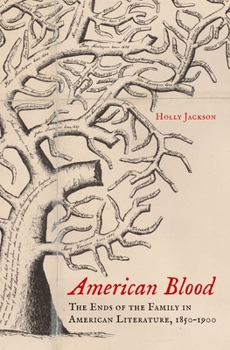American Blood
Conventional understandings of the family in nineteenth-century literary studies depict a venerated institution rooted in sentiment, sympathy, and intimacy. American Blood upends this notion, showing how novels of the period frequently emphasize the darker sides of the vaunted domestic unit. Rather than a source of security and warmth, the family emerges as exclusionary, deleterious to civic life, and antagonistic to the political enterprise of the...
Format:Hardcover
Language:English
ISBN:0199317046
ISBN13:9780199317042
Release Date:November 2013
Publisher:Oxford University Press, USA
Length:224 Pages
Weight:1.01 lbs.
Dimensions:0.9" x 6.3" x 9.3"
Customer Reviews
0 rating





